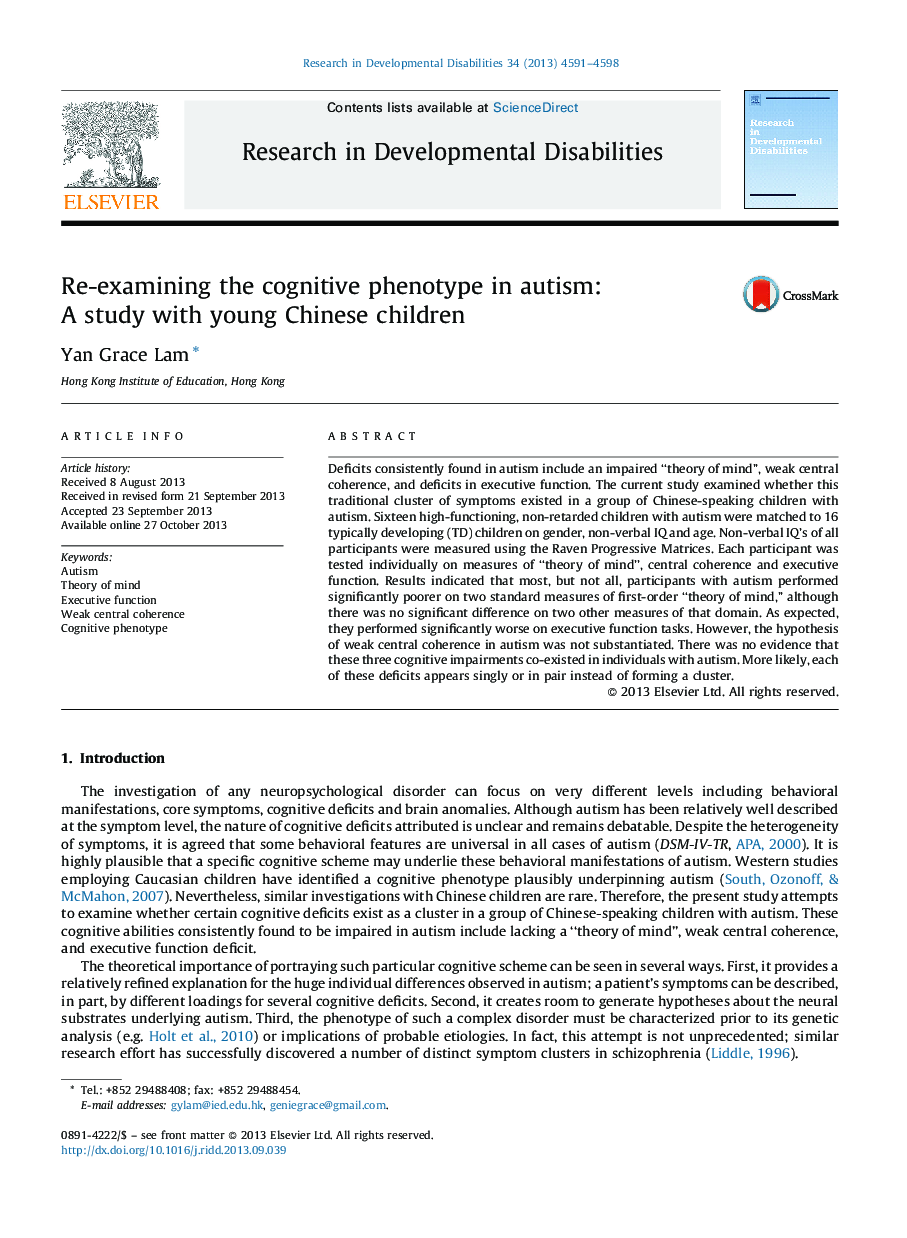| Article ID | Journal | Published Year | Pages | File Type |
|---|---|---|---|---|
| 10317848 | Research in Developmental Disabilities | 2013 | 8 Pages |
Abstract
Deficits consistently found in autism include an impaired “theory of mind”, weak central coherence, and deficits in executive function. The current study examined whether this traditional cluster of symptoms existed in a group of Chinese-speaking children with autism. Sixteen high-functioning, non-retarded children with autism were matched to 16 typically developing (TD) children on gender, non-verbal IQ and age. Non-verbal IQ's of all participants were measured using the Raven Progressive Matrices. Each participant was tested individually on measures of “theory of mind”, central coherence and executive function. Results indicated that most, but not all, participants with autism performed significantly poorer on two standard measures of first-order “theory of mind,” although there was no significant difference on two other measures of that domain. As expected, they performed significantly worse on executive function tasks. However, the hypothesis of weak central coherence in autism was not substantiated. There was no evidence that these three cognitive impairments co-existed in individuals with autism. More likely, each of these deficits appears singly or in pair instead of forming a cluster.
Related Topics
Life Sciences
Neuroscience
Behavioral Neuroscience
Authors
Yan Grace Lam,
